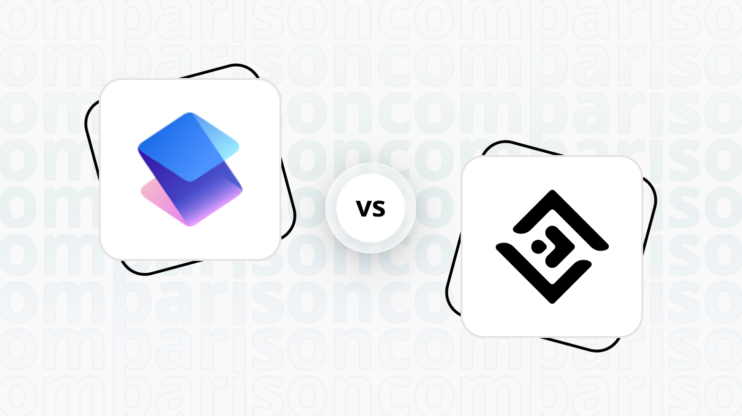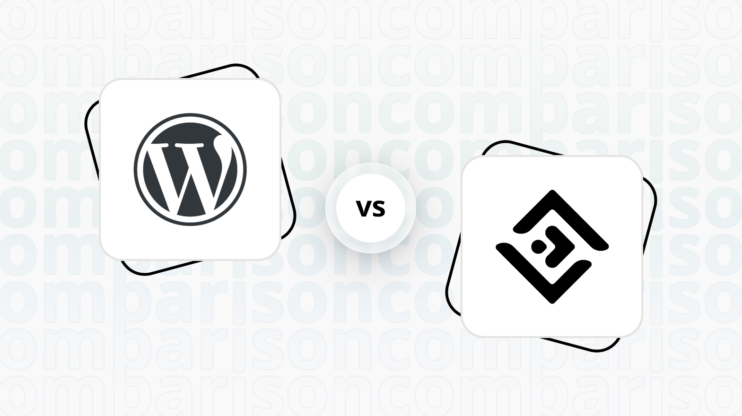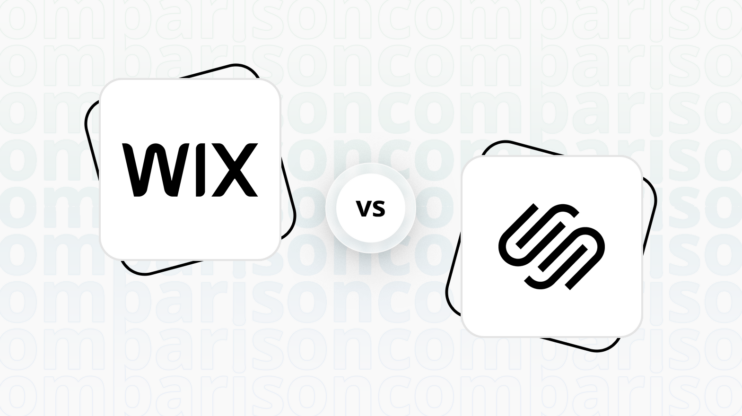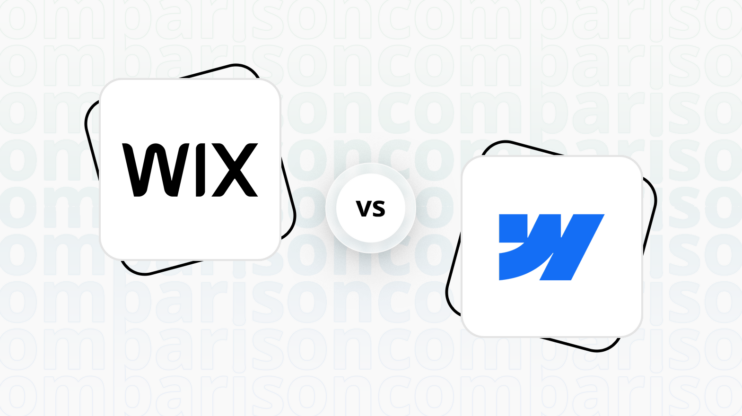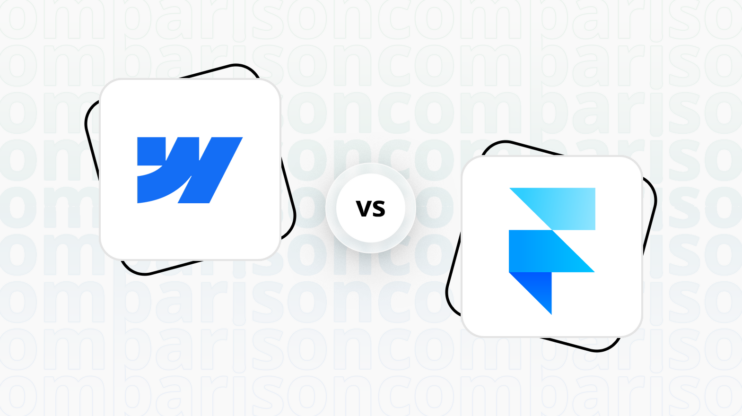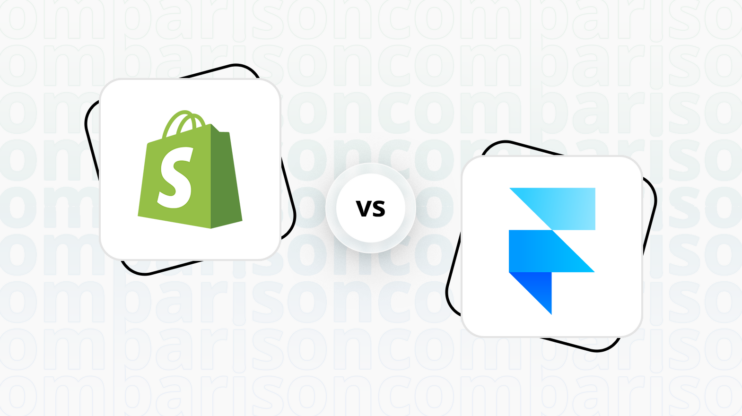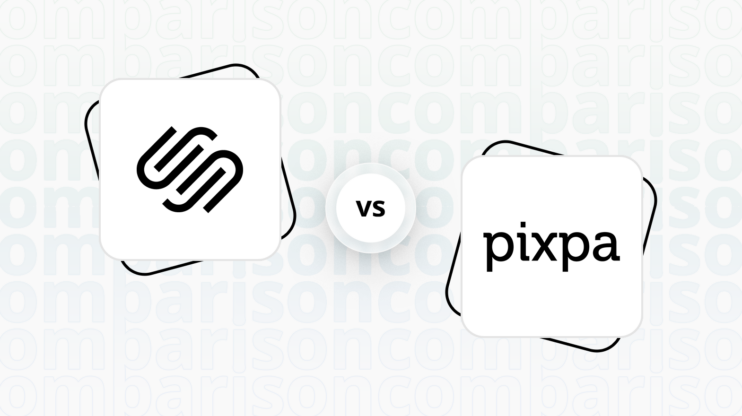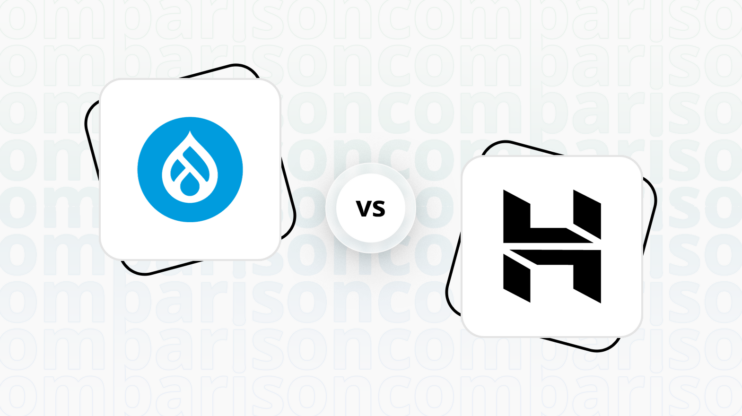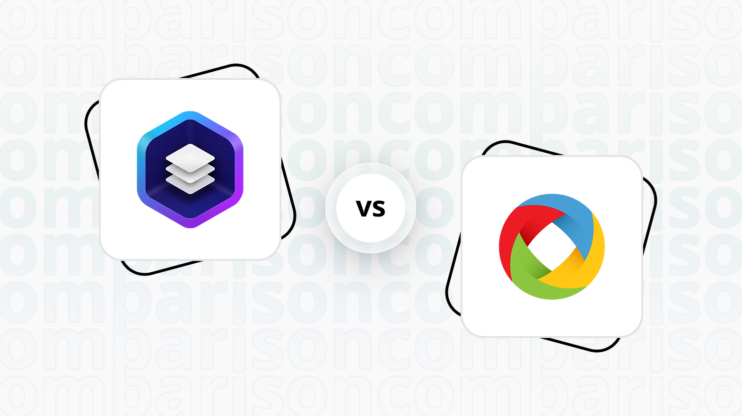Final verdict
WordPress and Siter.io cater to different needs and audiences, with WordPress emerging as the more versatile and feature-rich platform.
-
WordPress (Overall Grade: 7.1/10)
excels with its extensive customization options, vast plugin ecosystem, and strong community support. It’s the ideal choice for users seeking flexibility, scalability, and a wide range of features for blogs, business sites, and online stores. WordPress’s open-source nature and the ability to integrate AI capabilities further enhance its appeal to a broad audience, including those with more technical expertise. -
Siter.io (Overall Grade: 5.1/10)
, while scoring lower overall, shines in its user-friendly interface and unique design tools, such as the drag-and-drop editor and Figma integration. It’s best suited for users prioritizing ease of use and those without coding knowledge. However, its limited ecommerce features and integrations, as well as its nascent stage in areas like AI capabilities and security, make it a less versatile choice compared to WordPress.

|

|
|
|---|---|---|
|
Design functionalities & templates |
7.5 |
9.0 |
|
Ease of use |
8.3 |
7.2 |
|
Ecommerce |
3.4 |
8.4 |
|
Website Editors |
7.8 |
8.5 |
|
Product testing options |
8.2 |
8.1 |
|
Price |
8.1 |
5.9 |
|
Hosting quality |
3.9 |
0 |
|
Website speed optimization |
1.5 |
6.5 |
|
Plugins and integrations |
5.5 |
8.8 |
|
Marketing features |
2.6 |
8.0 |
|
Customer support |
4.1 |
5.0 |
|
Security |
6.8 |
6.7 |
|
AI capabilities |
0.0 |
6.1 |
|
User Management |
7.1 |
8.8 |
| Overall |
5.1 |
7.1 |
Best for ecommerce
 3.4
3.4
 8.4
8.4
Verdict
: For those looking to build a robust online store with extensive ecommerce capabilities, WordPress is the clear winner over Siter.io.
-
Siter.io
: While Siter.io offers basic ecommerce features and design flexibility, it falls short in providing the depth of ecommerce functionality needed for a comprehensive online store. It’s more suited for users focusing on design over complex ecommerce needs. -
WordPress
: With its vast array of ecommerce plugins like WooCommerce, WordPress excels in offering a scalable and customizable platform for building a sophisticated online store. It supports a wide range of payment gateways, advanced product customization, and has a strong ecosystem of themes and plugins tailored for ecommerce.
Best for informational & business websites
 7.2
7.2
 9.2
9.2
Verdict
: WordPress is the superior choice for informational and business websites, offering unmatched customization and a vast array of resources.
-
Siter.io
: Siter.io provides a user-friendly platform with unique design tools, making it a good option for those prioritizing ease of use and design capabilities. However, its lower score and limited template variety make it less ideal for complex informational sites. -
WordPress
: With a high score and extensive customization options, WordPress stands out for informational and business websites. Its open-source nature and vast community resources make it highly adaptable for a wide range of website types, from simple informational pages to complex business platforms.
Detailed comparison
Design functionalities & templates
Design FunctionalitiesRepresents how well each platform allows for creative design and customization of websites.Score Components:
- Template Variety (30%): Range and quality of design templates.
- Customization (30%): Flexibility and options for design alterations.
- User Interface (20%): Ease and intuitiveness of the design process.
- Responsiveness (10%): Adaptability to different devices and screen sizes.
- Innovation (10%): Unique design features and tools.
 7.5
7.5
 9.0
9.0
🏆
Winner: WordPress.
If you’re looking for a platform that offers extensive customization options and a wide variety of templates and designs, WordPress is the preferred choice.
Siter.io includes a handful of customizable templates for various website types, such as landing pages, portfolios, and e-commerce sites, ensuring users can start with a solid foundation and tailor each site to their needs. However, the limited number of templates is compensated with a UI which is very similar to design tools like Figma and AdobeXD. Additionally Siter.io has built in Figma plugin, which helps to export Figma designs directly to Siter.io platform, and make changes and tweaks right on Siter.io.
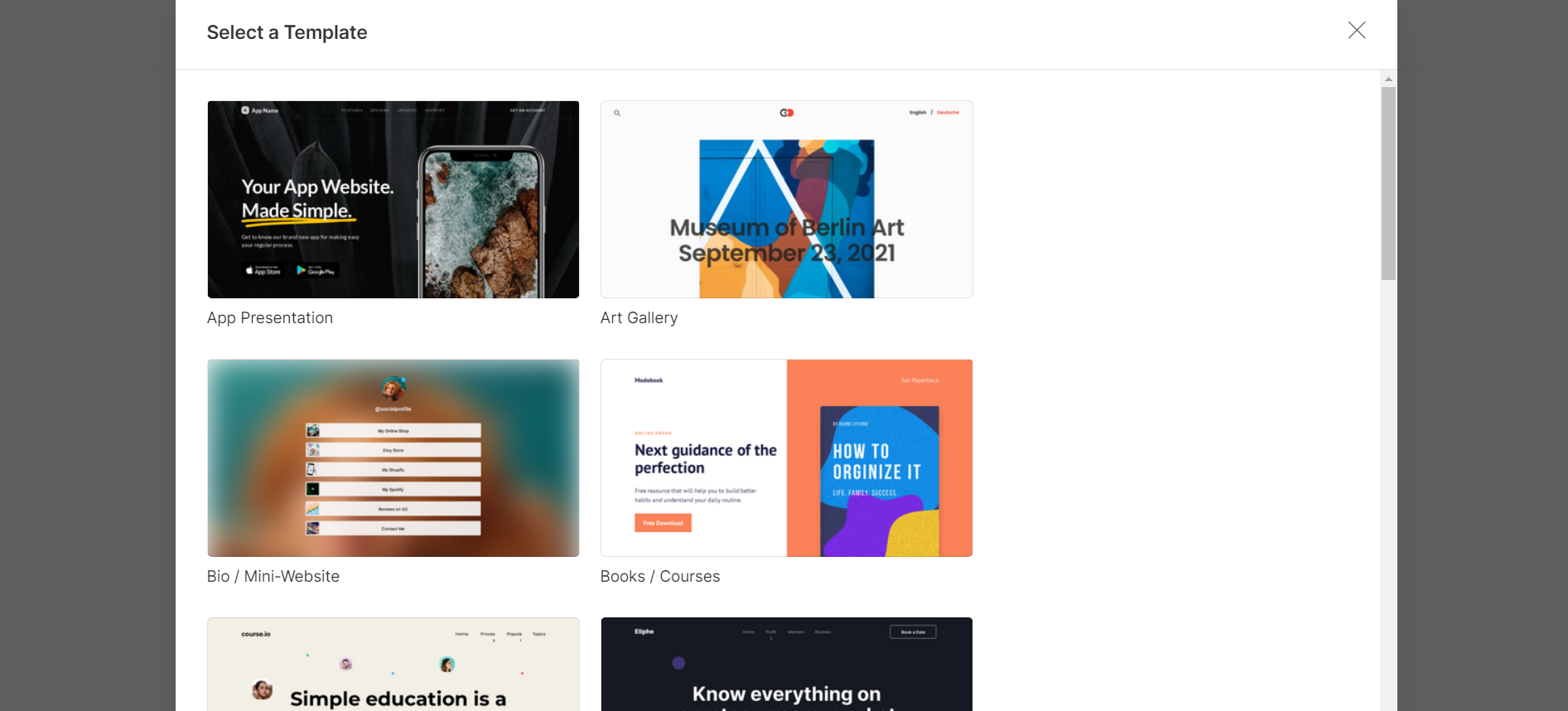

Compared to Siter.io, WordPress offers an extensive variety of templates and designs, catering to a wide range of website types beyond just blogs or ecommerce. Its open-source nature allows for high customization and creative freedom, appealing to diverse user needs. While WordPress itself doesn’t sell premium templates, numerous third-party theme shops offer sophisticated and specialized design choices, expanding the possibilities for users.
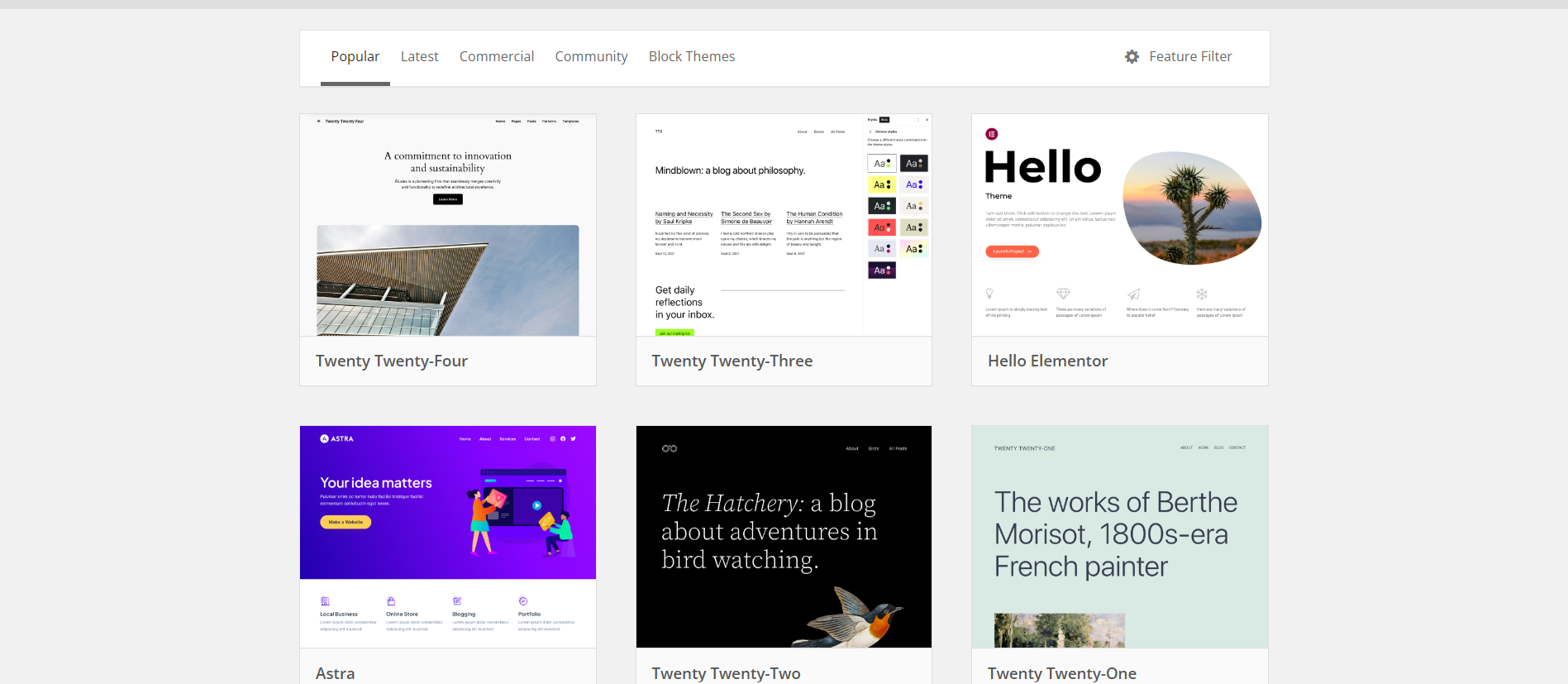

Get a head start on website creation with AI
Create a custom website tailored to your business needs 10X faster with 10Web AI Website Builder!
Ease of use
Ease of useReflects the platform’s overall user-friendliness.Score
Components:
- Learning curve (40%): Quickness and ease of getting started.
- Interface design (30%): Simplicity and intuitiveness of layout.
- User guidance (20%): Quality of tutorials and support.
- Flexibility (10%): Adaptability to various user skills.
 8.3
8.3
 7.2
7.2
🏆 Winner: Siter.io
. Scoring 8.3, Siter.io stands out for its user-friendly interface and tools, making it exceptionally easy for users without deep technical expertise to create and manage their websites. WordPress, with a score of 7.2, offers great flexibility and power but can be less intuitive for beginners. If ease of use is a priority, Siter.io is the clear winner in this category.
Learning Resources
🏆 Winner: WordPress
. While both platforms offer solid learning resources, WordPress goes a step further with its vast array of detailed documentation, community forums, online tutorials, and courses, making it easier for users to learn and adapt.
For ecommerce
EcommerceMeasures the platform’s effectiveness in supporting online business activities.Score Components:
- Ecommerce themes and templates (20%): Variety and design of templates.
- Product management (25%): Ease of managing and organizing products.
- Payment options (25%): Variety and convenience of payment methods.
- Ecommerce features (20%): Features for managing an ecommerce store.
- Integration (10%): Compatibility with external e-commerce tools and services.
 3.4
3.4
 8.4
8.4
When it comes to ecommerce, WordPress, with a score of 8.4, significantly outperforms Siter.io, which has a score of 3.4. This is largely due to the extensive ecommerce capabilities provided by plugins like WooCommerce on WordPress, compared to the basic ecommerce features offered by Siter.io.

|

|
|
|---|---|---|
|
Ecommerce themes and templates |
4.5 |
9.2 |
|
Product page customization |
6.5 |
9.0 |
|
Payment processing and commissions |
3.0 |
7.5 |
|
POS capabilities |
2.0 |
6.5 |
|
Payment gateways |
3.5 |
8.5 |
|
Product numbers |
2.5 |
7.0 |
|
Additional ecommerce features |
3.0 |
8.0 |
Siter.io ecommerce features:
- Shopping cart
- Checkout
- Purchase button
WordPress ecommerce features:
- WooCommerce Integration
- Multiple Payment Gateway Support
- Abandoned Cart Recovery
- Ecommerce Analytics
- SEO Optimization Tools
- Extensive Plugin Ecosystem
Ecommerce themes & templates
Siter.io has only a few ecommerce specific templates, however its built-in Figma integration enables the use of a variety of third-party website templates designed in Figma to create a fully functional website directly on the platform. On the other hand, WordPress offers hundreds to potentially thousands of ecommerce and WooCommerce specific themes and templates, both free and premium, providing a much wider range of options for designing an online store.
Product page customization
Siter.io prioritizes its design capabilities, offering a wide range of customization options that are only limited by the user’s skill level. In contrast, WooCommerce on WordPress offers extensive customization for ecommerce product pages, balancing plugins, page builders, and custom coding. Essential elements include quality product images, detailed descriptions, and effective add-to-cart buttons. Advanced features like product tabs, upsells, and related products are customizable. Tools like Elementor and the Ultimate Product Catalog plugin enhance functionality, but heavy plugin use may affect site performance.
Payment processing
Siter.io primarily serves as a website design tool rather than a dedicated ecommerce platform. While it does allow for the creation of ecommerce websites, its functionality for integrating payment gateways is quite limited. However, it’s important to note that the platform does support custom code injection, enabling users to integrate third-party payment widgets like PayPal or Stripe. On the other hand, WordPress doesn’t handle payments directly but offers plugin options for payment processing. Popular gateways include PayPal, Stripe, Authorize.Net, and Square. Choose a gateway based on transaction volume, currencies, fees, and security. Plugins integrate gateways with WooCommerce for a user-friendly setup. Consider options for recurring payments, offline payments, and fraud prevention. Research, read reviews, and start small, scaling as needed.
Website Editors
Website EditorsEvaluates the platforms’ website building and editing capabilities.Score Components:
- Customization tools (40%): Range and power of editing features.
- Editor usability (30%): User experience within the editor.
- Design flexibility (20%): Freedom in layout and design changes.
- Update and maintenance ease (10%): Simplicity of updating and maintaining the site.
 7.8
7.8
 8.5
8.5
🏆
Winner: WordPress
. WordPress, with a score of 8.5, offers a user-friendly interface with block-based editing, extensive styles customization, template management, page editing/creation, distraction-free modes, versatile saving options, and accessibility for users of varying skill levels. It also provides a wide range of blocks and widgets for creating websites, including free blocks like Core Blocks, Design Blocks, Media Blocks, and Widgets, as well as premium blocks available through third-party plugins.
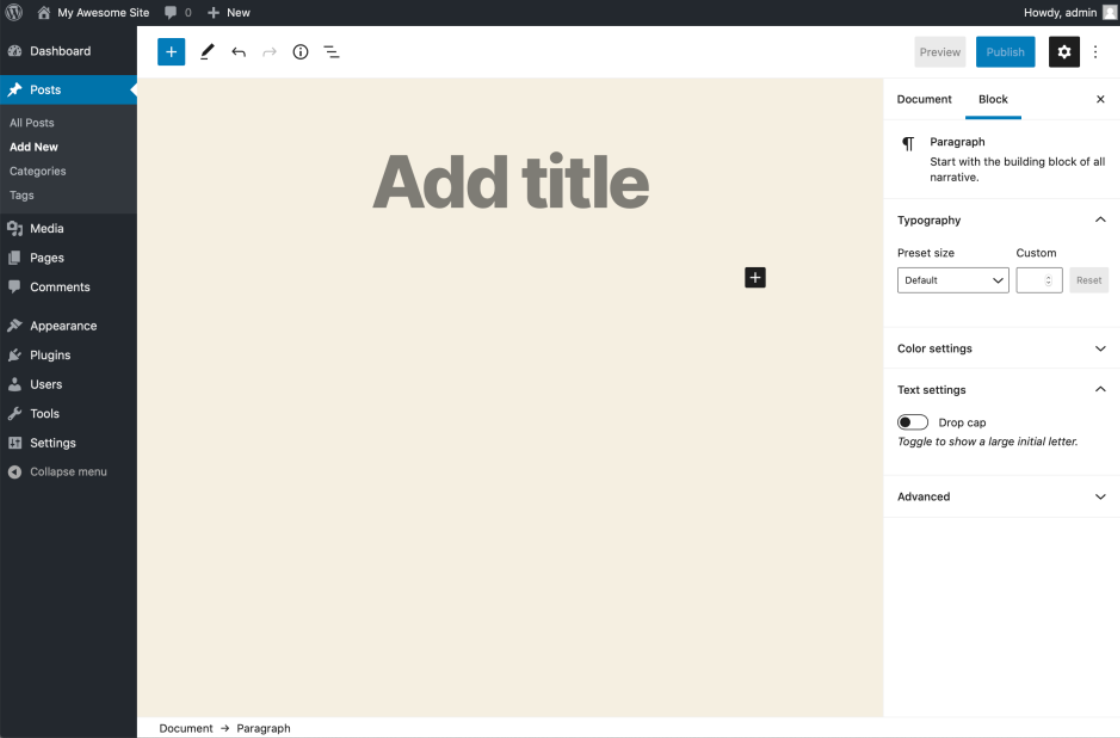
Siter.io’s editor, scoring 7.8, is designed to empower users with the ability to create websites seamlessly without any coding skills. It features an intuitive interface, real-time collaboration, and Figma integration, enhancing productivity and creativity for designers and teams. However, it doesn’t provide a wide range of pre-built widgets and blocks, which is compensated for by the editor’s strong focus on design functionalities and its built-in Figma plugin.

Mobile editor/app
 0
0
 8.1
8.1
🏆
Winner: WordPress
. Siter.io does not offer a mobile editor, which puts it at a disadvantage compared to WordPress. WordPress, on the other hand, provides a mobile editor app that allows users to manage their website on the go. Users can create and edit posts, manage comments, schedule content, and analyze website traffic from their phone or tablet.
However, it’s important to note that while the WordPress mobile editor offers convenience and basic functionality, it has some limitations compared to the web-based editor, including fewer advanced options, restricted code access, and limited design customization.
Product testing options
Product Testing OptionsAssesses the options for trying out platform features before commitment.Score Components:
- Trial quality (40%): Extent and usefulness of the trial or free version.
- Feature accessibility (30%): How many features are available to test.
- Trial duration (20%): Length of the trial period.
- Ease of transition (10%): Smoothness of moving from trial to paid plans.
 8.2
8.2
 8.1
8.1
Overall Result
:
Siter.io Wins
. Siter.io scores slightly higher than WordPress with a score of 8.2 against 8.1. Siter.io offers a free version that allows users to test all premium features, which gives it an edge over WordPress. WordPress, being an open-source CMS, doesn’t require payments and offers a free version, but it doesn’t provide the possibility to test premium features.

|

|
|
|---|---|---|
|
Free Plan |
Yes | Yes (open source software) |
|
Trial Duration |
No | No |
|
Testing Premium Features |
Yes (with free plan) |
No |
|
Money Back Guarantee |
No | No (No payments required) |
Price
PriceLooks at the cost-effectiveness and value for money of each platform.Score Components:
- Plan value (40%): What each pricing tier offers.
- Transparency and clarity (30%): Clearness of pricing structures.
- Flexibility of plans (20%): Range of options to suit different budgets.
- Hidden costs (10%): Additional expenses not included in the plan.
 8.1
8.1
 5.9
5.9
Siter.io offers a range of pricing plans, including a free option, while WordPress is open-source and free, but requires separate purchases for hosting and domain services.

|

|
|
|---|---|---|
|
Free |
Start (Free/month): Includes unlimited teammates, up to 10 pages, 3 forms, Figma plugin, and SSL certificate. Additional websites are free, and SEO and page speed features are not included. Additionally, it’s not possible to publish any of the websites with the free plan. |
Free Plan ($0/month): WordPress is open source software that is free. WordPress does not provide hosting services; so, it is necessary to purchase a domain, web hosting, and website builder subscriptions separately. While WordPress lacks built-in ecommerce, plugins like WooCommerce offer a solution. WordPress offers an extensive variety of templates and designs. WordPress lacks a built-in AI-assisted builder, but its open-source nature allows for an ecosystem of plugins and themes incorporating AI for website building. |
|
$0-$10 |
Solo ($8/month): For 1 website and includes 2 editors, up to 10 pages, 3 forms, Figma plugin, and SSL certificate. Additional editors cost $4 each. Value for price: 6.0 |
No offering at this amount. |
|
$10-$20 |
Plus ($14/month): Offers 3 websites with 4 editors, up to 50 pages, 5 forms, Figma plugin, and SSL certificate. Additional editors cost $6 each. Value for price: 7.5 |
No offering at this amount. |
|
$20+ |
Pro ($29/month): Provides 5 websites, 6 editors, unlimited pages, unlimited forms, Figma plugin, and SSL certificate. Additional websites cost $8 each. Value for price: 8.5 |
No offering at this amount. |
location. As a result in rare cases the prices displayed here can differ from the ones you see on their
websites.
Hosting quality
Hosting
qualityExamines the reliability and performance of the hosting solutions.Score Components:
- Uptime (40%): Consistency and reliability of website availability.
- Speed (30%): Loading times and performance.
- Bandwidth and storage (20%): Sufficiency of resources provided.
- Data centers (10%): Quality and distribution of hosting infrastructure.
 3.9
3.9
 0
0
🏆
Winner: Siter.io
Siter.io offers cloud-based hosting, but lacks detailed information on bandwidth, storage limitations, and does not disclose its data centers or uptime statistics. WordPress, on the other hand, does not directly provide hosting services. The type of hosting, uptime, and data centers depend on the chosen hosting provider. Despite the lack of detailed information, Siter.io has a higher hosting quality score due to its cloud-based hosting service.

|

|
|
|---|---|---|
|
Do they offer hosting? |
Yes |
No |
|
Data Centers: |
Not disclosed |
Depends on hosting provider |
|
Type of hosting: |
Cloud based hosting |
Depends on hosting provider |
|
Uptime: |
Not disclosed |
Depends on hosting provider |
|
Uptime Guarantee: |
No |
Depends on hosting provider |
Website Speed Optimization
Website Speed OptimizationEvaluates optimization of website loading timesScore Components:
- PageSpeed Score (30%): Google’s score indicating performance optimization.
- Loading Time (30%): The average time until a website is fully interactive.
- Mobile Optimization (15%): Optimization effectiveness for mobile devices.
- Resource Optimization (15%): Optimizing images, scripts, and other heavy resources.
- CDN Usage (10%): Use of CDN to enhance speed across geolocations.
 1.5
1.5
 6.5
6.5
🏆 Winner: WordPress
Both Siter.io and WordPress recognize the importance of website performance and page speed, but WordPress provides more resources and tools for users to optimize their websites, making it the winner in this category.

|

|
|
|---|---|---|
|
Focus |
Mobile Responsiveness, SEO optimization |
Extensive customization options |
|
Performance Tools |
Not disclosed |
Core Web Vitals, WP Rocket, Hummingbird |
|
Key Strategies |
Not disclosed |
Numerous learning resources available |
|
Load Times |
Not disclosed |
Varies widely, dependent on optimization |
|
Page Speed Scores Range |
Not disclosed |
Scores vary; influenced by apps, images |
|
Core Web Vitals Improvement |
Not disclosed |
Analyze CWV, optimize images, use CDN |
WordPress, an open-source content management system, provides extensive customization options through themes and plugins. While WordPress itself does not have a specific strategy for website speed optimization, it offers numerous learning resources on how to optimize your website. These resources include tools like Core Web Vitals, WP Rocket, and Hummingbird, and strategies such as choosing a reliable host, optimizing images, minimizing plugins, using lazy loading, and employing a CDN. WordPress also encourages users to consider AMP for mobile speed. The load times and PageSpeed scores of WordPress websites vary widely, depending on the level of optimization.
Siter.io, a website builder designed to simplify the process of creating and managing websites, focuses on mobile responsiveness and SEO optimization. However, Siter.io does not disclose specific strategies or statistics related to website speed optimization, including load times, PageSpeed scores, and Core Web Vital improvements. This lack of transparency makes it difficult to assess the effectiveness of Siter.io’s approach to website speed optimization.
Get a head start on website creation with AI
Create a custom website tailored to your business needs 10X faster with 10Web AI Website Builder!
Plugins and integrations
Plugins and integrationsMeasures the range and effectiveness of additional plugins and integrations.Score Components:
- Variety of options (40%): Range of available add-ons.
- Integration smoothness (30%): Ease of integrating plugins into the site.
- Quality of plugins (20%): Functionality and reliability of the options.
- Custom integration capabilities (10%): Support for custom or third-party integrations.
 5.5
5.5
 8.8
8.8
🏆 Winner: WordPress.
With a score of 8.8, WordPress outperforms Siter.io, which scores 5.5. WordPress offers over 60,000 free plugins, extending its functionality across various domains such as advanced ecommerce tools, SEO optimization, social media integration, email marketing, website analytics, appointment scheduling, customer support, enhanced media galleries, blogging features, custom forms and surveys, diverse payment processing options, website localization, improved security measures, and the addition of custom widgets. On the other hand, Siter.io offers limited integrations, primarily prioritizing its design capabilities. However, it does support custom code injection, allowing users to incorporate third-party plugins as needed.
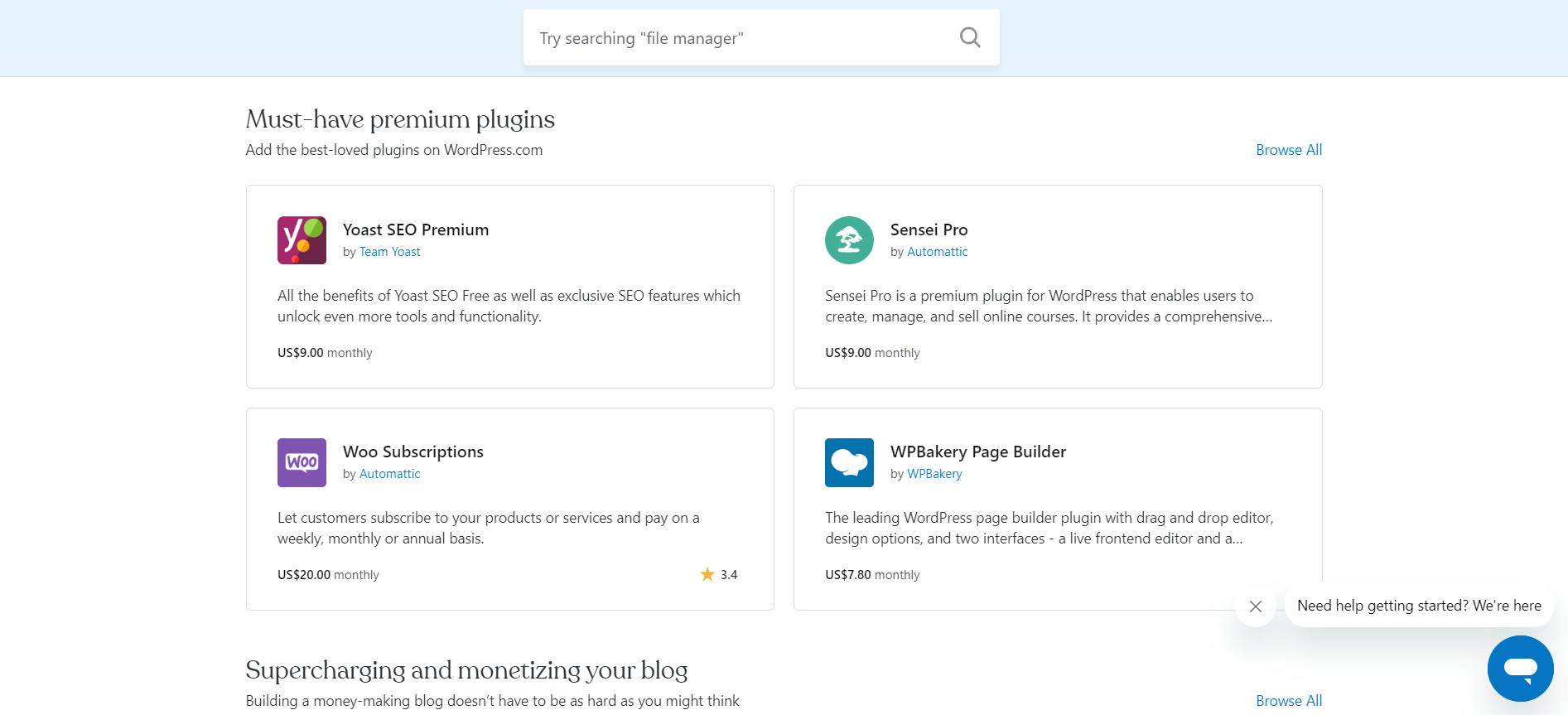
Marketing Features
Marketing featuresAssesses tools and options available for marketing.Score Components:
- SEO tools (40%): Effectiveness of SEO features.
- Marketing automation (30%): Availability and quality of marketing tools.
- Social Media integration (20%): Ease and depth of social media connectivity.
- Email marketing (10%): Quality and usability of email marketing tools.
 2.6
2.6
 8.0
8.0
🏆
Overall Winner: WordPress
. WordPress stands out for its extensive customization options through themes and plugins, making it suitable for blogs, business sites, and online stores. Siter.io, on the other hand, is a website builder designed to simplify the process of creating and managing websites. It offers a drag-and-drop interface and freehand design tool unique to Siter.io, making it easy for users without coding knowledge to design and customize their sites.
| Marketing Features |

|

|
|---|---|---|
|
SEO Tools |
Basic SEO features | Advanced SEO features through plugins |
|
Email Marketing |
No | Yes, through plugins |
|
Blogging |
Yes, possible to design a simple blog using Siter.io | Yes, with extensive features |
|
Social Media Integration |
No | Yes, through plugins |
|
Analytics and Reporting |
Google analytics integration | In-depth analysis via plugins like Google Analytics |
|
Ads and Promotions |
Facebook Pixel integration | Support for Google Ads and ad management through plugins |
Customer Support
Customer supportEvaluates the quality and availability of support options.Score Components:
- Response time (40%): Speed of support responses.
- Support quality (30%): Effectiveness and helpfulness of the support.
- Availability (20%): Range of support channels (phone, chat, email).
- Resource richness (10%): Quality of self-help and educational materials.
 4.1
4.1
 5.0
5.0
🏆 Winner: WordPress
. Despite being an open-source platform with no direct customer support, WordPress wins this category with a score of 5.0. Users can find assistance through community forums, the WordPress codex, hosting provider support, and plugin and theme support.
On the other hand, Siter.io, with a score of 4.1, primarily assists customers through its extensive help center and articles. While email support is available, the platform doesn’t specify the days or hours of operation for customer support. It’s worth noting that Siter.io does not offer customer support for enterprises.
Security
SecurityLooks at the platforms’ security measures and data protection.Score Components:
- Data protection (40%): Safeguards for user and customer data.
- SSL and encryption (30%): Implementation of secure connections.
- Compliance (20%): Adherence to industry security standards.
- Regular updates (10%): Frequency of security updates and patches.
 6.8
6.8
 6.7
6.7
🏆
Winner: Siter.io
. Siter.io takes a proactive approach to security, employing a zero-knowledge storage system that encrypts data both in storage and during transfer. This makes user data inaccessible even to Siter.io itself. The platform also uses multi-factor authentication and conducts regular security audits to further safeguard user information.
On the other hand, WordPress’s approach to private data storage and protection can vary depending on the hosting provider. While WordPress provides numerous functionalities and resources to enhance website security, such as site backups, monitoring, malware scanning, user activity tracking, permission control, and spam protection tools, the lack of a standardized approach to data storage and protection gives Siter.io the edge in this category.
AI Capabilities
AI capabilitiesMeasures the effectiveness of AI-driven features and tools.Score Components:
- Automation efficiency (40%): Impact of AI on streamlining processes.
- Personalization (30%): AI-driven customization for users or customers.
- AI-Assisted design (20%): Role of AI in website design and functionality.
- Data analysis (10%): Use of AI in interpreting user data and analytics.
 0.0
0.0
 6.1
6.1

|

|
|
|---|---|---|
|
AI Builder |
|
AI Site Builder and Zita plugins offer AI-assisted website building |
|
AI Ecommerce features |
|
AI plugins like Conversios, Ochatbot, AI Power, GetGenie, Woowoo, WooCommerce Multilingual offer enhanced ecommerce functionality |
|
AI Content Generation |
|
AI Engine, GetGenie for content writing, and AI Power: Complete AI Pack offer AI-powered content generation |
🏆 Winner: WordPress
. WordPress, with a score of 6.1, allows for the integration of various AI plugins due to its open-source nature. This includes AI-assisted website builders, AI-powered ecommerce functionality, and AI content generation. On the other hand, Siter.io does not have any AI capabilities.
User Management
User ManagementAssesses the platforms’ capabilities in managing user roles, permissions, and accessibility.Score Components:
- Role Customization (40%): Flexibility in creating and defining user roles and
permissions. - Ease of Management (30%): User interface and tools for managing users.
- Access Control (20%): Effectiveness of access control measures for different user
levels. - Scalability (10%): Ability to manage a growing number of users efficiently.
 7.1
7.1
 8.8
8.8
🏆 Winner: WordPress
. Managing your online team with Siter.io and WordPress involves different approaches to website editing access.
- Siter.io focuses on its real-time collaborative features, offering varying numbers of editors depending on the plan. Each plan provides access for 2 to 6 editors who can edit and design websites, with the option to include additional editors for an extra fee.
- The editing access for a WordPress.org website depends on user roles and additional controls. User roles, ranging from Super Admin to Subscriber, dictate the level of permissions, while plugins and controls such as role management plugins and revision control offer further customization for specific editing rights and collaboration.
WordPress User Roles and Access Levels:
| Role | Description | Access Highlights |
|---|---|---|
| Super Admin | Manages the entire network in WordPress Multisite. | Network admin, manage sites, users, plugins, themes. |
| Administrator | Full access within a single site. | Manage plugins, themes, users, all posts/pages. |
| Editor | Manages and publishes content, including others’ posts. | Edit/publish all posts, manage comments, categories. |
| Author | Publishes and manages their own posts. | Write, edit, publish own posts, upload files. |
| Contributor | Writes and edits their own posts but cannot publish. | Write, edit own posts (no file uploads or publishing). |
Additional Features

|

|
|
|---|---|---|
|
SSL Certificate |
|
|
|
Custom Domain |
|
|
|
Free Custom Domain Included |
|
|
|
International Domains |
|
|
|
Mobile Responsive |
|
|
|
Page Speed |
|
|
|
Website Builder Mobile App |
|
|
|
Convert a Website To An App |
|
|
|
Website Analytics |
|
|
|
Multilingual Sites |
|
|
|
Multiple Users |
|
|
User Feedback
Siter.io is highly appreciated by its users for its user-friendly interface and robust features, such as the drag-and-drop editor and customizable templates, which make website building accessible to teams without coding expertise. However, users agree that the platform could improve its integration options to further enhance workflow efficiency. Despite this, Siter.io effectively addresses the challenge of website creation without coding skills, benefiting designers, small business owners, and individuals seeking to establish an online presence or portfolio quickly and efficiently.
On the other hand, WordPress receives praise for its user-friendliness, cost-effectiveness, extensive themes and plugins, customization options, and supportive community. However, users mention technical challenges, security concerns, a learning curve, and a lack of direct support. Despite these challenges, it remains a widely used and versatile platform, especially beneficial for startups and small businesses.
The making of this blog
We followed a clear, step-by-step process to write and research this article.
FAQ
Which platform is better for beginners, Siter.io or WordPress?
Can I use both Siter.io and WordPress for ecommerce?
How do Siter.io and WordPress differ in terms of customization and design flexibility?
What are the major differences in pricing between Siter.io and WordPress?
Which platform offers better hosting quality, Siter.io or WordPress?
Can I integrate AI capabilities into my website with Siter.io or WordPress?
Which platform is recommended for users prioritizing website security?










